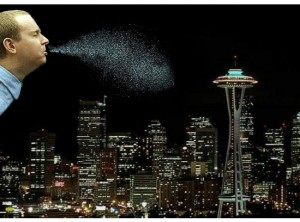LOCAL
Paid sick leave helps fight the spread of flu
The following by Marcus Sweetser, an intern at the Economic Opportunity Institute, is crossposted from the EOI’s Washington Policy Watch blog:
The nationwide flu outbreak has taken a dangerous turn, occurring five weeks earlier than usual and spreading at ten times the typical rate. As of January 10, a public health “state of emergency” was declared in Boston as reports have surfaced that at least 18 people in the area have died recently from a flu outbreak.
The Centers for Disease Control and Prevention has said that this year’s flu season is expected to be one of the worst the country has seen in 10 years, and some doctors are concerned about a nation-wide “flu explosion” in the making.
Across the country, the reports are mounting:
- Oklahoma school districts are closing schools after the deaths of 8 people.
- Pennsylvania has had 22 deaths. Most of the deaths were among people older than 65.
- Indiana has 13 confirmed adult deaths and two pediatric deaths.
- Arkansas has seven confirmed flu fatalities.
- South Carolina has counted 22 deaths.
- Illinois has counted six deaths.
- Michigan has seen four pediatric deaths.
One of the factors contributing to the severity of this year’s flu season is the emergence of an especially virulent flu strain, as well as Influenza B, which is not covered by the standard flu vaccine.
 Nationwide, 1 in 3 workers has no paid sick days. In Seattle, where Mayor Mike McGinn recently signed landmark city legislation for paid sick leave, the city and surrounding area are better prepared than most municipalities for a public health emergency. The law, which took effect September 2012, ensures an estimated 150,000 workers in Seattle who previously did not earn paid sick days – including thousands of local grocery stores, restaurants and medical centers – will not be forced to work sick this flu season.
Nationwide, 1 in 3 workers has no paid sick days. In Seattle, where Mayor Mike McGinn recently signed landmark city legislation for paid sick leave, the city and surrounding area are better prepared than most municipalities for a public health emergency. The law, which took effect September 2012, ensures an estimated 150,000 workers in Seattle who previously did not earn paid sick days – including thousands of local grocery stores, restaurants and medical centers – will not be forced to work sick this flu season.
ALSO today at AFL-CIO Now — Can’t miss work even if you have the flu? You’re not alone — While many experts and doctors urge people to stay at home to avoid infecting others, 38% of private-sector workers lack even one paid sick day. This means, many people have to choose between working sick and not being able to pay their rent and utilities. That’s a pretty big problem. To make matters worse, many of the workers who don’t have paid sick leave are the people cooking and serving our food when we eat out.





